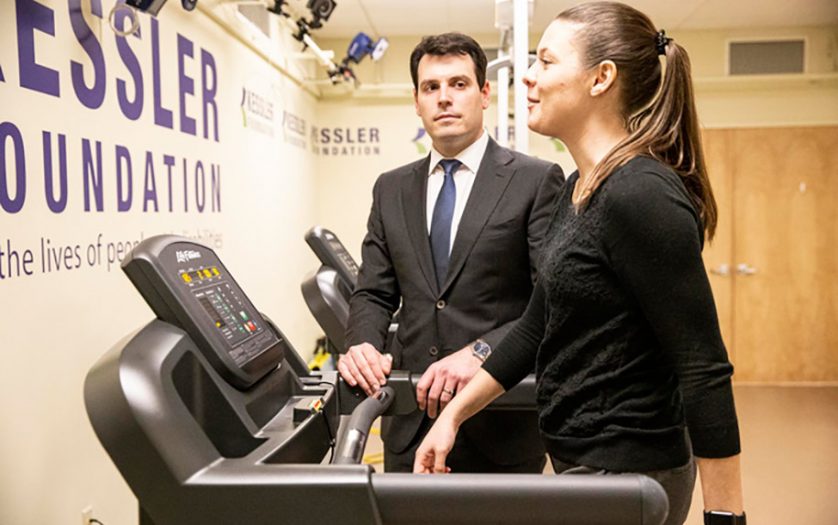
Citing recent evidence, experts in rehabilitation research advocate for integrating exercise into the care plans of persons with multiple sclerosis. The central role of the neurologist in clinical care offers an opportunity for this provider to promote exercise as fundamental for managing the physical and cognitive symptoms of MS.
The article, “The neurologist as an agent of exercise rehabilitation in multiple sclerosis”, was published in Exercise and Sports Sciences Reviews 2021 Oct 1.
Mounting evidence supports exercise as an important tool for managing the manifestations of MS, including fatigue, depression, and declines in physical mobility, balance, and cognition. While disease-modifying therapies can slow the progression of disease and disability, they do not alleviate symptoms or functional decline that adversely affect quality of life. Despite the advantages of exercise, physical inactivity is reported by 80 percent of people with MS.
To promote exercise for individuals with MS, the authors describe a tri-level conceptual model based on patient-provider interactions. The base of the pyramidal framework consists of preparing providers for their role as agents of change through professional training and support; the middle level centers on the patient-provider interaction and providing the resources needed for exercise protocols, and the top outlines the goal setting and monitoring needed to achieve a shift from inactivity to active lifestyle.
“This model is ripe for application in clinical settings,” according to lead author Brian Sandroff, PhD, senior research scientist in the Center for Neuropsychology and Neuroscience Research at Kessler Foundation, and director of the Center’s Exercise Neurorehabilitation Research Laboratory. “Incorporating exercise rehabilitation in the armamentarium of treatment options has the potential to transform MS care,” he emphasized. “We see a pivotal role for neurologists in not only promoting the benefits of exercise to members of their care teams and their patients, but in ensuring access to the resources needed to effect behavioral change.”
The authors recognize the challenges inherent in implementing this practice model, and the need for research that bridges the gaps between knowledge and clinical practice. The authors propose the development of a clinical toolkit as a practical approach to promoting exercise in the care plans for individuals with MS. “From the research perspective, such a tool could add to our knowledge of physical activity in this population, and prompt reevaluation of the impact of exercise on multiple end points,” Dr. Sandroff noted. “This will help guide the development of exercise protocols that achieve maximal results.”








